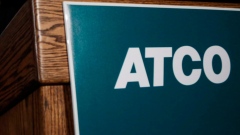Apr 21, 2023
Vancouver scraps 'disingenuous' single-use cup fee after industry pushback
, BNN Bloomberg
U.S. scientists develop new tech to chemically repurpose traditionally non-recycled plastics
Vancouver’s widely unpopular $0.25 single-use cup fee will no longer be in effect starting May 1.
The change comes after Vancouver Mayor Ken Sim publicly announced his party’s intention to repeal the fee earlier this year, and City Council then voted to amend the bylaw in February.
The bylaw, which was implemented in January last year and known to be the first in North America to target single-use cups, has been met with criticism from both consumers and the restaurant industry, largely for its failure to incentivize consumers to go green.
The mandatory fee was in addition to a bag fee, which can see Vancouverites pay upwards of an extra $0.50 for a McDonalds drive-thru order.
“It’s a well-intentioned failure,” Matthew Senecal-Junkeer, owner of The Birds & The Beets in Vancouver’s Gastown district, said in a phone interview. “I think there’s a rationale to [the cup fee], but it failed to move the needle on customer behaviour.”
Instead, his frontline staff at the breakfast and lunch bistro have had to bear the brunt of customer complaints, particularly from tourists.
“People think they’re being scammed, like it’s a hidden fee. It’s a little disingenuous,” said Senecal-Junkeer.
Vancouver Councillor Rebecca Bligh, who put forth the motion to repeal the fee, questioned its efficacy from the onset.
“People who are aware of their climate footprint are going to bring their own cup, but not because of a 25-cent fee,” she said in a phone interview. “When we’re charging a fee and think we’re doing something to reduce waste [and] we’re actually not, it becomes a distraction away from taking much-needed action.”
Senecal-Junkeer’s restaurant offers a reusable cup exchange program, but he doesn’t see customers deterred by the single-use cup fee.
“If you’re driving and you don’t have a reusable cup on you, the fee is probably too small to really [create] change,” he said. “Sometimes we even see people come into the restaurant and prefer a paper cup for whatever reason.”
The cup fee applies to all food vendors in Vancouver including large chain corporations like Starbucks and Tim Hortons. Businesses get to keep the revenue and are encouraged to reinvest it towards developing sustainable alternatives.
But such initiatives like cup fees, bag fees or Starbucks' practice of offering a 10-cent discount for bringing your own cup tend to be overlooked according to Sean Dunlop, equity analyst with Morningstar.
He noted in an email that material environmental, social and governance (ESG) risks are usually those that weigh on store sales and impact a brand’s labour costs like unionization or bad press related to labour practices or food safety. The City of Vancouver, however, is so small that initiatives like charging a single-use cup fee wouldn't impact the chain's consolidated bottom-line, according to Dunlop.
In an email statement, Starbucks explains that a portion of the cup fees collected at its Vancouver locations went to a local not-for-profit recycling organization. By next year, the coffee chain plans to allow customers to bring their own reusable cups for in-store visits, drive-thru and mobile orders.
For small business owners like Senecal-Junkeer – who estimates the cup fee brought in $6,000 in revenue last year – the fee can only go as far as replacing what otherwise would have been an overdue price hike of menu items, given the inflationary pressures businesses are now facing.
“We’re still in a really difficult time,” added Mark Von Schellwitz in a phone interview, vice-president of Western Canada of Restaurants Canada. “We’re dealing with pandemic debt and an acute labour shortage now which is leaving our members limited in operational capacity.”
He said the cup fee also posed an administrative burden for businesses especially if they operate in more than one municipality, which would require them to change their point-of-sales systems and train staff differently.
The member organization that represents food trucks, restaurants, caterers, bars and pubs has lobbied against municipalities from imposing the fee including Victoria City Council, which recently unanimously rejected a similar proposal, citing Vancouver’s failed objectives.
“We’re hoping to get rid of this patchwork of different municipal bylaws and provincial and federal regulations, which was really confusing to a lot of our members,” said Von Schellwitz.
“We’ve made investments in reusable, compostable materials over the years, only to find out that they're ending up in landfill anyways because of different municipal infrastructure, what can and can’t be accepted.”
Senecal-Junkeer, who estimates he pays 16 per cent more for premium paper takeout supplies, only learned recently that the city doesn't have the facilities to properly compost or recycle certain materials.
“We thought we were making an environmentally-sound choice, but it turns out we were doing the exact opposite,” he said. “Maybe [the city] investing in that sort of capacity might be more fruitful in reducing our plastic waste.”
That’s why Councillor Bligh and organizations like Restaurants Canada say efficacy matters when imposing punitive policies like the cup fee on consumers.
“Younger people are ordering everything from their tablets or phones and are far more engaged in the takeout delivery market,” said Von Schellwitz, who believes the takeout market will grow, underscoring the need for more pragmatic policies around reducing waste.
While Vancouverites can be relieved of the cup fee for now, a bag fee will remain which has increased to a minimum of $0.25 in 2023.
Small business owners like Senecal-Junkeer, however, remain skeptical.
“If somebody comes up to the service counter and asks for a bag, it's really hard to tell them to go back in line and charge 25 cents,” he said. “It seems like the most inhospitable thing to do.”







